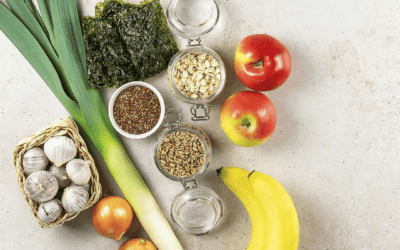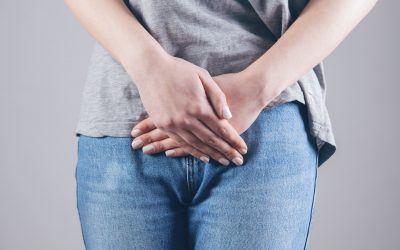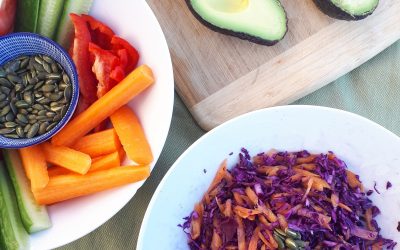Are you following a gluten free diet for IBS?
There is a growing trend to give up gluten, and with the shelves full of gluten free products there is more choice than ever before if you’re gluten free.
Prefer audio? >> 🎙️listen to my PODCAST EPISODE – Should I go gluten free if I have IBS?
If you feel like you react to bread and pasta, it may be worth checking your reaction to the FODMAP fructan first.
Why do people go gluten free for IBS?
There are various reasons why people give up gluten:
- Coeliac Disease – where the body reacts to the protein in gluten and even a tiny amount (20 parts per million) can damage the gut lining. It’s really important to follow a strict gluten free diet.
- Non-coeliac gluten sensitivity (NCGS) – there are no bio-markers to diagnose this, but we know that some people react the eating foods with gluten in. You may experience digestive issues like bloating, constipation, or gas, or systemic issues like brain fog, skin problems or sleep disruptions.
- Wheat allergy – you can develop an allergy to wheat, but may be ok with other forms of gluten (e.g. spelt, rye, barley)
- IBS – Suspecting it adds to their IBS symptoms. However, it might not be the gluten in foods, but rather the starch content.
Is it fructan or gluten causing your IBS?
Some people with IBS feel better when they give up bread and pasta. Particularly if they’ve been eating a lot of wheat based carbohydrate foods previously.
Wheat is normally the main grain in bread, crackers, cake and pasta, and the starch content of the wheat kernal is mostly fructan.
What is fructan?
Fructan is a long string of fructose molecules found in foods such as onions, garlic, leeks, asparagus,dates, grapefruit, okra, and Brussell sprouts. Inulin, used as a sweetener in some food products, is a kind of fructan.
For some people with IBS, fructans can trigger digestive issues.
Your small intestine digestive processes don’t break fructans down, so they pass to the large intestine. Fructan can be rapidly fermented by our gut bacteria, which is very good for your gut health. Fructan containing foods help gut microbes to create Short Chain Fatty Acids. These are anti-inflammatory and support the colon cells, as well as
BUT, for some people with IBS this fermentation can cause bloating, gas, reflux, abdominal cramps and either diarrhoea or constipation.
It’s often the fructan that people are reacting to, not the gluten. The best way to see if Fructan is an issue for you, is to follow the low FODMAP diet. This removes all the fermentable carbohydrates from your diet, and then if you feel better, you an reintroduce the FODMAP types one by one.
If you get no relief from a low FODMAP diet then you could try a gluten free diet for IBS.
Getting tested for coeliac disease
Before you trial giving up gluten for IBS it is worth getting a coeliac test from your doctor.
Ruling out coeliac disease is one of the important steps your doctor should do before an IBS diagnosis can be made.
In people who have coeliac disease, the immune system reacts to the gluten, and creates antibodies which will show up on a blood test. To get a valid result from your test you must have eaten gluten in your diet for six weeks prior to the test.
So, if you give up gluten, and THEN feel better, you’re not going to want to add it back in again for six weeks just to get the test. This is a common conundrum my clients find themselves in.

Is there research on a gluten free diet for IBS?
There are some issues with studying gluten free diets for people with IBS. Often the studies do not control for
- the type of IBS someone may have
- if people have been screened for coeliac disease (there may be people with undiagnosed conditions)
- there was no control group to compare the results to (did patient’s symptoms improve due to being part of a study, additional nutrition advice?)
- studies are underpowered – using just a handful of people
- if they are just avoiding gluten, or gluten containing foods which also contain fructans
- the other proteins in wheat which can irritate the gut called amylase-trypsin inhibitors.
This makes it hard to know in some cases whether the gluten is an issue, or the wheat. At the moment, the evidence does not strongly suggest giving up gluten to resolve issues with IBS.
One randomised controlled trial found that people with IBS-D had fewer bowel movements when they were on a gluten free diet, but this was only in a small group of 40 people. Other studies found:
- a gluten free diet improved IBS-D symptoms for around 34% (12 participants) over 12 months. There was no control group, and these people were removing all gluten containing foods, including all grains.
- 71% of people with IBS-D felt better after 6 weeks gluten free (but removing all gluten / fructans).
- In a cross over trial, where all participants did a week gluten free, and a week gluten free with added gluten supplement, found people with non-coeliac gluten sensitivity felt better when they ate a gluten free diet.
These results do look positive, but often they were taking out the wheat and other grains, which could be down to the fructan content, not gluten.
How to give up gluten
If after reading all this you want to trial a gluten free diet, here’s how to get started.
To properly do an elimination diet you need to be strict with the removal of all gluten for 6-8 weeks. If you don’t completely cut gluten out of your diet then you won’t be able to judge if you need to give it up longer term.
Should you go gluten free with irritable bowel?
Some people feel better when they stop eating gluten, and it can be for a number of reasons:
- You’ve cut out the cakes, biscuits and bread you were eating. There is less junk around you ‘can’ eat.
- You’re focused on a new way of eating, noticing what you eat and choosing food more consciously
- Whenever we spend time on improving our diet we become more in tune with what our body is telling us
- You now include more variety in your diet, which helps provide vitamins, minerals, antioxidants and different types of fibre you weren’t eating before.
There is no reason for most people to live a gluten free life
Wholegrains like spelt, wheat, and rye are particularly healthy foods. Going gluten free doesn’t necessarily equate healthier.
Junk food that happens to be gluten free isn’t any healthier than that which contains gluten
The reason whole grains are so healthy is down to the high fibre content.
If you’re removing most bread, pasta and cereals from your diet you’re probably cutting down on your fibre.
And most of us don’t eat enough fibre so it’s important to consider where your is now coming from.
Importance of fibre on a gluten free diet
Fibre helps to keep us fuller for longer, support colon health and bulks out the stool to help regular movements.
Without fibre on a gluten free diet we will be starving the good bacteria in the gut. You could be making your IBS symptoms worse. This is because fibre helps regulate bowel movements, and keeps the large intestine healthy.
Your gut microbes interact with our immune system, make some production of critical our hormones and vitamins, so we need to look after them.
A healthy gluten free diet
It’s very important to concentrate on getting enough fibre from gluten free sources to feed the gut microbes and keep digestion functioning normally.
Concentrate on eating foods that are naturally gluten free rather than processed alternatives (e.g. gluten free bread and pasta).
Eat lots of pulses (beans and legumes) as well as fruits and vegetables.

Your Action Points – Healthy gluten free diet tips
If you need to give up gluten you can stay healthy by following these tips:
- Include gluten free whole grains in your diet (brown, rice, quinoa, buckwheat, oats). Check these are certified gluten free if you have coeliac disease.
- Minimise filling up on gluten free alternative products as these are often low in fibre, and high in additives
- Aim for at least 5 portions of fruit and vegetables a day, add an extra one to each meal
- Bulk up meals with beans or lentils (add tin of beans to your pies, chilli’s and curries)
- Snack on nuts and seeds or add them to meals (e.g. sprinkle on breakfast cereals)
- Eat oats for breakfast (if tolerated)
- Include the skins of fruit and veg as this increases the fibre (e.g. don’t peel apples, scrub clean but don’t peel carrots)
- Snacks – Popcorn 28g – 2.8g fibre

IBS Nutritionist
Hi, I'm Anna Mapson, registered Nutritional Therapist.
I help people with IBS and SIBO get control of unpredictable gut symptoms to find long term relief from painful and embarrassing IBS without restrictive dieting.
I can help you to:
- understand your digestion better, so you recognise your triggers
- eat a well balanced diet, with tasty meals that are simple to prepare
- reintroduce your trigger foods so you can get back to enjoying food again
Find more about my 3 month 1:1 Gut Reset programme.
Are prebiotics good for IBS?
If you've tried taking prebiotics for your IBS you might have noticed they can really make a big impact. And not always in a good way! Prebiotics are a type of short chain sugars found in plant foods, and they also help to feed our healthy gut bacteria. Many people...
Why does my stomach rumble? Causes of noisy digestion
Ever interrupted a meeting with a loud stomach rumble? Or heard sounds in there like a blocked drain is being cleared? Whilst it can be embarrassing, stomach noises aren't normally anything to worry about, it's often just food and liquid moving through your digestion....
How Many Times Should I Chew My Food?
Have you ever noticed how many times you chew your food? It might be something you think about much, but when I'm working with my clients it's something I ask people to think about. I've got four reasons why you should probably be chewing more than you currently are...




